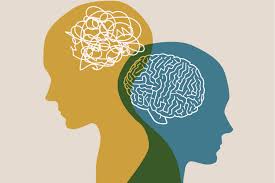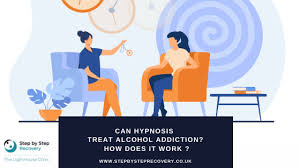Dual Diagnosis: Understanding Co-Occurring Mental Health and Substance Use Disorders
When an individual is diagnosed with both a mental health disorder and a substance use disorder, it is referred to as dual diagnosis or co-occurring disorders. This complex condition requires integrated treatment that addresses both the mental health issue and the substance abuse problem simultaneously.
Common Dual Diagnosis Conditions
Some common mental health disorders that often co-occur with substance use disorders include:
- Depression
- Anxiety disorders
- Bipolar disorder
- Schizophrenia
- Post-traumatic stress disorder (PTSD)
Challenges of Dual Diagnosis
Individuals with dual diagnosis face unique challenges in their recovery journey. The interplay between mental health symptoms and substance abuse can complicate treatment efforts. For example, self-medication with drugs or alcohol to cope with mental health symptoms can exacerbate the underlying issues and lead to a cycle of dependency.
Treatment Approaches for Dual Diagnosis
Effective treatment for dual diagnosis involves a comprehensive approach that integrates mental health care and substance abuse treatment. Some common treatment approaches include:
- Integrated therapy: Therapy that addresses both the mental health and substance use aspects of dual diagnosis simultaneously.
- Medication management: Pharmacological interventions to manage mental health symptoms and support recovery from substance abuse.
- Social support: Engaging in support groups, counseling, and peer networks to build a strong support system.
- What is dual diagnosis?
- What are the common mental health disorders that co-occur with substance use disorders?
- How does dual diagnosis affect treatment approaches?
- What are the challenges faced by individuals with dual diagnosis?
- Is it common for people with mental health disorders to also have substance use issues?
- How can integrated therapy help in treating dual diagnosis?
- Are there specific medications used to manage dual diagnosis conditions?
- What role does social support play in the recovery of individuals with dual diagnosis?
- Can untreated dual diagnosis lead to more severe mental health and substance abuse problems?
Conclusion
Dual diagnosis requires specialized care that recognizes the interconnected nature of mental health and substance use disorders. By addressing both aspects of this complex condition concurrently, individuals can achieve lasting recovery and improved overall well-being.
Understanding Dual Diagnosis: Key Questions and Answers About Co-Occurring Mental Health and Substance Use Disorders
What is dual diagnosis?
Dual diagnosis refers to the co-occurrence of a mental health disorder and a substance use disorder in an individual. This complex condition requires integrated treatment that addresses both aspects simultaneously. Individuals with dual diagnosis face unique challenges as the interaction between mental health symptoms and substance abuse can complicate their recovery journey. Understanding and addressing both the mental health issues and substance abuse problems are essential in providing effective care for individuals with dual diagnosis.
What are the common mental health disorders that co-occur with substance use disorders?
Individuals with substance use disorders often experience co-occurring mental health disorders, creating a complex condition known as dual diagnosis. Common mental health disorders that frequently co-occur with substance use disorders include depression, anxiety disorders, bipolar disorder, schizophrenia, and post-traumatic stress disorder (PTSD). The presence of these mental health conditions alongside substance abuse can complicate treatment and recovery efforts, highlighting the importance of integrated care approaches that address both aspects simultaneously for effective management and support.
How does dual diagnosis affect treatment approaches?
Dual diagnosis, the co-occurrence of a mental health disorder and a substance use disorder, significantly impacts treatment approaches. When addressing dual diagnosis, it is crucial to consider the interconnected nature of these conditions and tailor treatment strategies accordingly. Integrated therapy that simultaneously targets both the mental health symptoms and substance abuse issues is often recommended. Additionally, medication management may be necessary to address psychiatric symptoms while supporting recovery from substance use. Social support through counseling, support groups, and peer networks plays a vital role in helping individuals navigate the complexities of dual diagnosis and achieve sustainable recovery outcomes. By recognizing the unique challenges posed by dual diagnosis and implementing comprehensive treatment approaches, individuals can work towards improved well-being and long-term recovery success.
What are the challenges faced by individuals with dual diagnosis?
Individuals with dual diagnosis face a multitude of challenges that can significantly impact their well-being and recovery journey. One of the primary challenges is the intricate interplay between mental health issues and substance abuse, where each can exacerbate the other. This complexity often leads to difficulties in accurately diagnosing and treating both conditions effectively. Additionally, stigma surrounding mental health and substance use disorders can create barriers to seeking help and accessing appropriate care. Managing symptoms from both disorders simultaneously while navigating societal misconceptions can pose significant hurdles for individuals with dual diagnosis, underscoring the critical need for integrated and comprehensive treatment approaches tailored to their unique needs.
Is it common for people with mental health disorders to also have substance use issues?
It is not uncommon for individuals with mental health disorders to also experience substance use issues. This co-occurrence, known as dual diagnosis, is a complex phenomenon that affects a significant portion of the population. The relationship between mental health and substance abuse can be bidirectional, with each condition influencing and exacerbating the other. It is essential for healthcare providers to recognize and address both aspects of dual diagnosis concurrently to provide effective treatment and support for individuals facing these interconnected challenges.
How can integrated therapy help in treating dual diagnosis?
Integrated therapy plays a crucial role in treating dual diagnosis by addressing both the mental health and substance use aspects simultaneously. This approach recognizes the interconnected nature of these co-occurring disorders and provides a comprehensive treatment plan that considers the individual’s unique needs. By combining therapy techniques that target mental health symptoms with interventions to address substance abuse issues, integrated therapy helps individuals develop coping strategies, improve self-awareness, and build resilience. This holistic approach fosters lasting recovery by promoting overall well-being and empowering individuals to manage their dual diagnosis effectively.
Are there specific medications used to manage dual diagnosis conditions?
When it comes to managing dual diagnosis conditions, there are specific medications that may be used as part of the treatment plan. Medications can play a crucial role in addressing the symptoms of mental health disorders, such as depression, anxiety, or bipolar disorder, as well as supporting recovery from substance use disorders. Pharmacological interventions prescribed by healthcare professionals aim to help stabilize mood, reduce cravings, manage withdrawal symptoms, and improve overall mental well-being. It’s important for individuals with dual diagnosis to work closely with their healthcare provider to determine the most effective medication regimen tailored to their specific needs and circumstances.
What role does social support play in the recovery of individuals with dual diagnosis?
Social support plays a crucial role in the recovery of individuals with dual diagnosis. Having a strong network of supportive relationships can provide emotional encouragement, practical assistance, and a sense of belonging that are essential for navigating the challenges of managing both mental health and substance use disorders. Social support can help individuals feel less isolated, reduce feelings of stigma, and promote adherence to treatment plans. By fostering connections with understanding and empathetic individuals, those with dual diagnosis can find comfort, motivation, and hope on their journey toward recovery.
Can untreated dual diagnosis lead to more severe mental health and substance abuse problems?
Untreated dual diagnosis, where both mental health and substance abuse issues coexist, can indeed lead to more severe problems in both areas. When left unaddressed, the interconnected nature of these conditions can exacerbate each other, creating a cycle of escalating symptoms and behaviors. For example, untreated mental health issues may drive individuals to self-medicate with drugs or alcohol, which can worsen their mental health symptoms and lead to increased substance abuse. This vicious cycle can result in a deterioration of overall well-being, making it crucial to seek integrated treatment that addresses both aspects of dual diagnosis simultaneously to prevent further escalation of problems.


